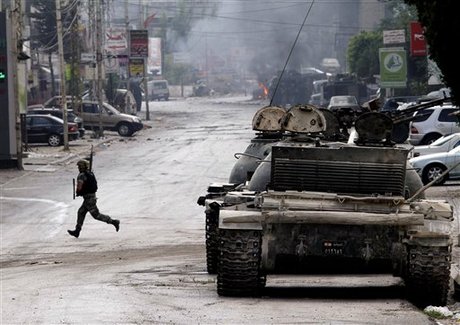
BASRA, Iraq: A sense of calm returned to Iraq’s southern city of Basra on Sunday after a week of violent protests over unemployment and poor public services that left at least 15 people dead and threatened stability in the oil-rich region.
Troops sent from Baghdad have reinforced police, and government offices and markets reopened after a quiet night. Municipality workers were out in force cleaning up the streets and carting away debris from the clashes.
The oil-rich region and other cities in Iraq’s southern Shiite heartland have been convulsed by the most serious protests in years, with residents complaining of power outages, filthy tap water and soaring unemployment.
In recent days, protesters have attacked government offices, political party headquarters and the Iranian consulate. Many blame their woes on neighboring Iran’s outsized influence on Iraqi politics and are calling for radical change.
On Saturday, a spokesman for an alliance of powerful Shiite militias, many of them backed by Iran, vowed to respond against “those who are carrying out acts of arson and sabotage.” The local commander, known as Abu Yasser al-Jaafari, said the lack of response thus far should not be taken as a sign of weakness.
Hours later, masked government troops in combat fatigues deployed in the city, setting up checkpoints and riding through the city center in black pickup trucks with heavy weapons mounted in the back. Security forces in Humvees deployed at intersections.
Naqeeb al-Luaibi, a local activist, said protest organizers have decided to suspend the demonstrations after receiving death threats from Iran-backed militias. The militias accuse them of colluding with the US, which has long worked to curb Iranian influence in Iraq, allegations denied by the activists.
“We’ll suspend protests now to spare blood and we’ll return with a new approach,” he said. “We will not give up until our demands are met.”
Iraq is still without a new government nearly four months after national elections in which no party won a majority. Rival parliamentary blocs — one seen as friendlier to the US and the other closely allied with Iran — each claim to have assembled a governing coalition. Prime Minister Haider al-Abadi, part of the pro-US bloc, and Basra’s governor have traded blame for the crisis.
Basra, once known as the “Venice of the East” because of its freshwater canals, has been hit by an acute water crisis, including rising pollution and salt water levels. The city, where temperatures often approach 50 degrees Celsius (122 degrees Fahrenheit) during the summer, has also been crippled by electricity shortages.
Iraq’s government has scrambled to meet the growing demand for public services and jobs, but has been hindered by years of endemic corruption and a financial crisis fueled by diminished oil revenues and the costly war against Daesh.
Basra is Iraq’s second-largest province and home to about 70 percent of the country’s proven oil reserves of 153.1 billion barrels. It is located on the Persian Gulf bordering Kuwait and Iran, and is Iraq’s only hub for oil exports.












